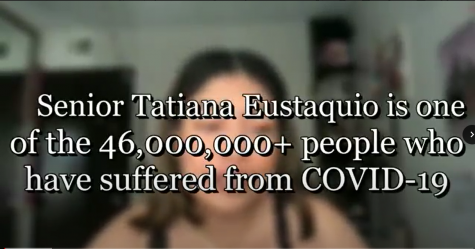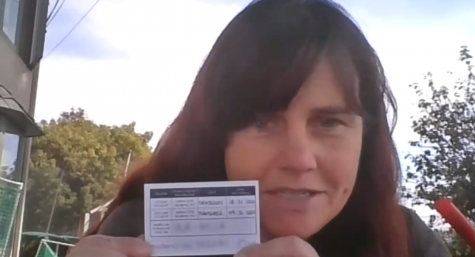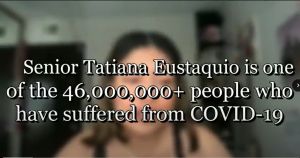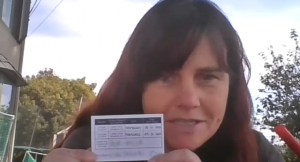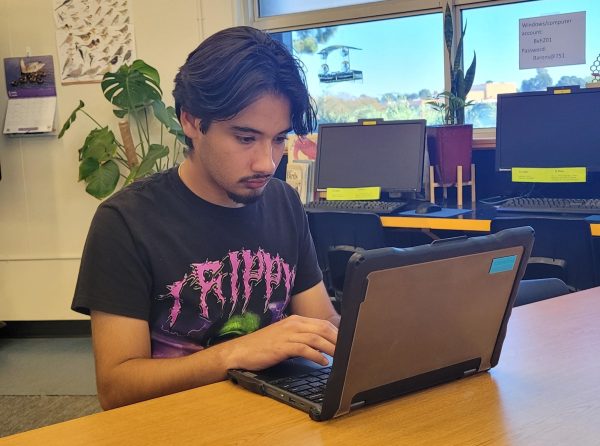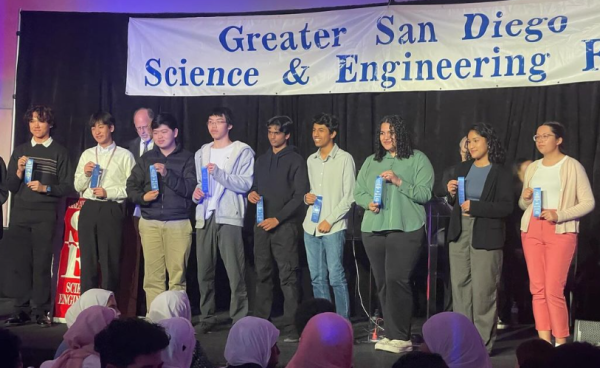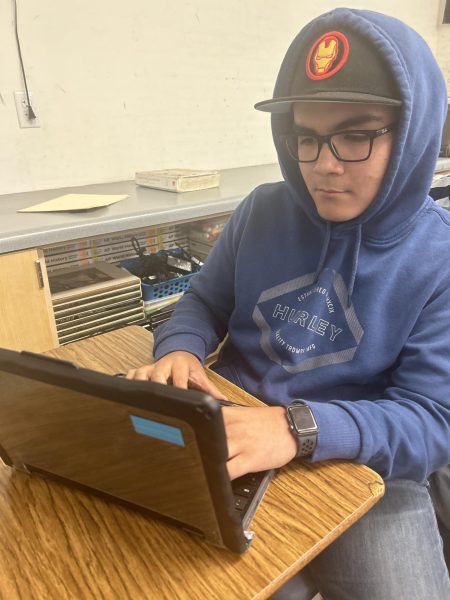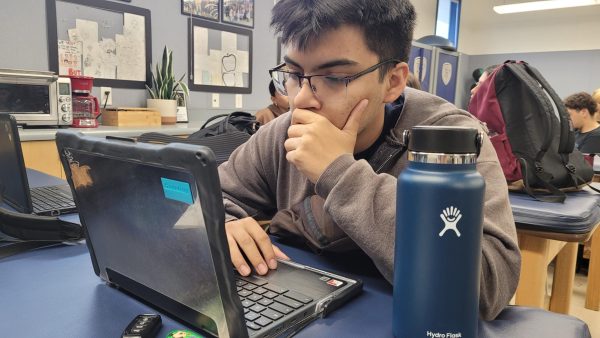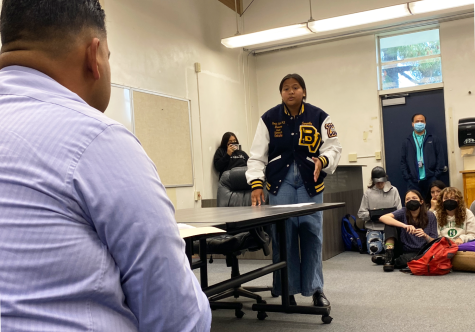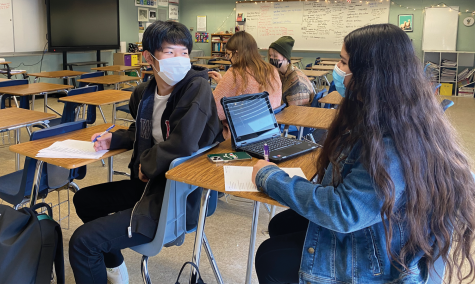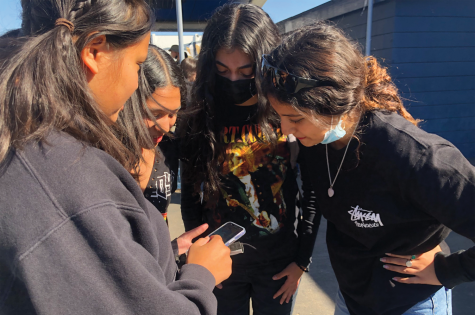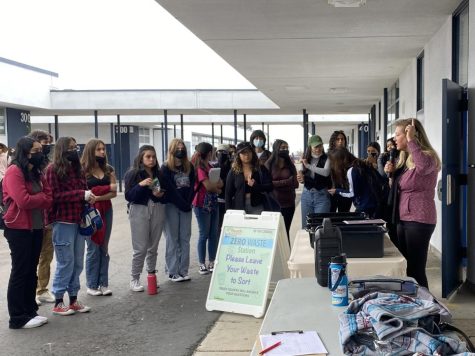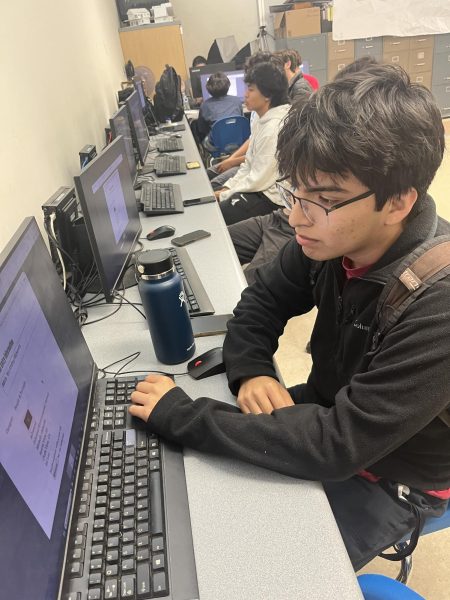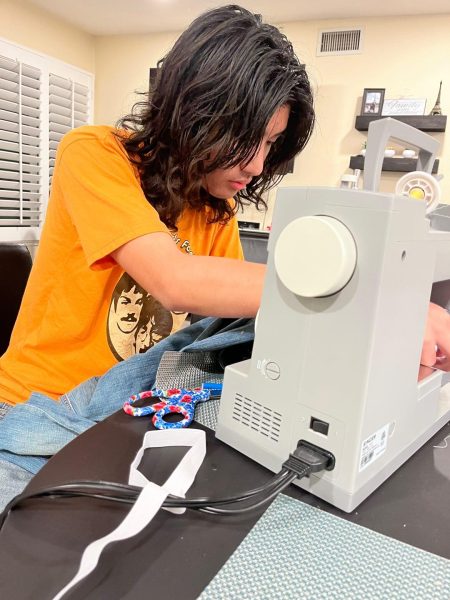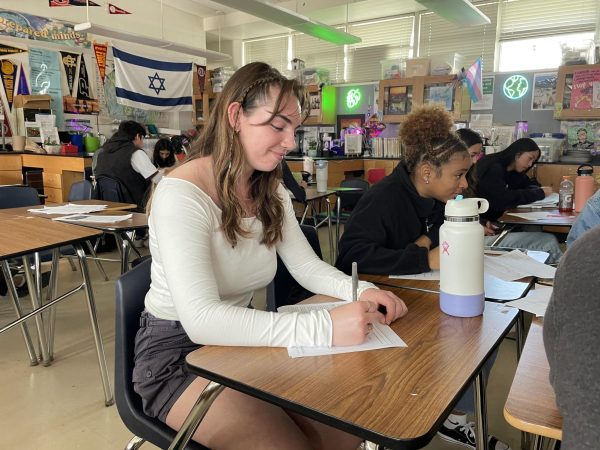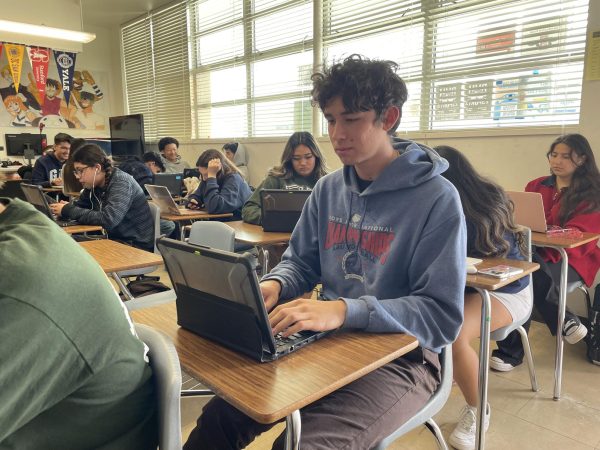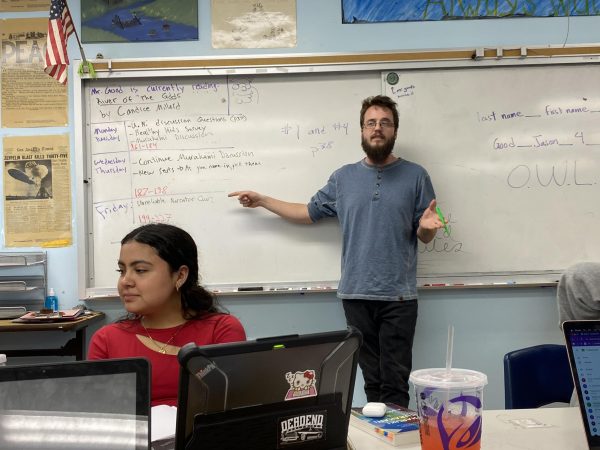The faces of COVID-19
Students mourn loss of loved ones to coronavirus
Her name was Manuela Delgado.
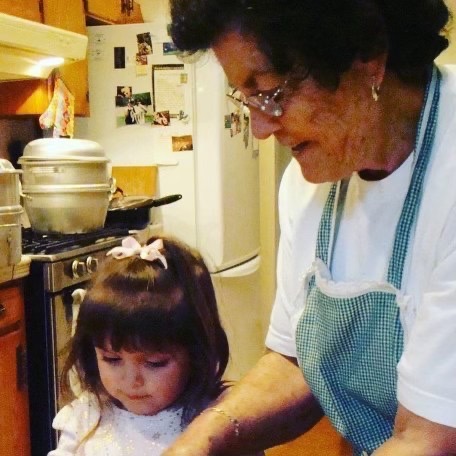
At 89, Manuela Delgado—a resident of Chula Vista, a great grandmother of nine, a family matriarch—passed away on Nov. 2, 2020 from coronavirus.
Junior Maria Delgado remembers Manuela Delgado, her grandmother, as a “kind and generous” woman, as well as a skilled gardener. During their summers, they picked reeds in Manuela Delgado’s backyard, adorned with “pretty little trees,” according to Maria Delgado, and later baked together.
“[It was] really special,” Maria Delgado said.
But she isn’t the only Bonita Vista High (BVH) student who has lost a friend or family member from COVID-19. A recent poll of 441 BVH students conducted by The Crusader reveals that 31% of students have lost someone they know to coronavirus. These losses come as the nation grapples with a pandemic that has taken the lives of over 500,000 people—a “mass death,” according to Florida International University professor Catherine Mas, “[that] is going to create trauma.”
Manuela Delgado’s abrupt passing mirrors the story of many afflicted by coronavirus. She was healthy and active until she began showing symptoms of COVID-19. Manuela Delgado’s family initially did not plan on taking her to the hospital, as her sickness had not progressed significantly, but Maria Delgado explained how slowly it “escalated” until she was hospitalized and later passed.
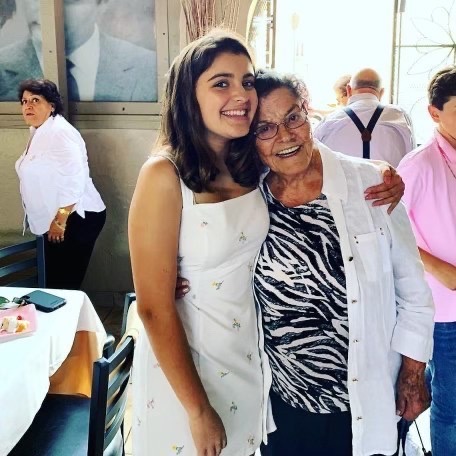
“I was really heartbroken,” Maria Delgado said, wiping away tears. “It’s kind of hard to talk about because I was really close to her, but [it was] definitely emotional.”
Manuela Delgado’s family was shocked to discover that she had passed, as she was “healthy and happy,” her granddaughter said. Her passing was further compounded by the family’s previous loss of Rudolfo Martinez, Maria Delgado’s great uncle, in October of 2020.
“She played a really fundamental role for my family. We [never] saw her passing anytime soon. When she did it was really detrimental,” Maria Delgado said.
Maria Delgado said she copes with grief by recognizing that her grandmother is in “a better place” and by maintaining a consistent schedule. She likes to “keep busy” with school and friends to separate herself from the unprecedented circumstances of the pandemic.
“Knowing that [she was] in a better place was almost relieving [because] she wasn’t suffering anymore,” Maria Delgado said. “I [try not to let] the pandemic throw [me] off. I wake up in the morning and get dressed all the time, and I don’t cut myself short [on] things in quarantine. I feel like it’s nice to keep yourself busy so you don’t dwell on it as much.”
Maria Delgado also has friends who have also lost loved ones, which she said contributes to the normalization of death and mourning for many people during the pandemic.
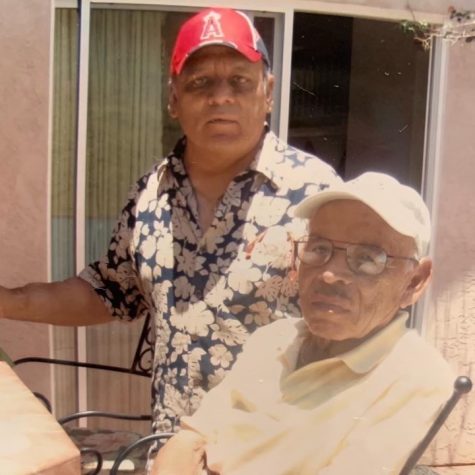
“My best friend actually lost her great-grandmother too. And I’m pretty sure other family members [did] as well. [It’s] really sad, but it feels so normalized because I feel like everybody now has a family member that’s passed. I noticed that a [majority] of the people I know lost a relative to COVID. It’s like [if] you [haven’t], you’re really lucky,” Maria Delgado said.
Carmen Marroquin deeply valued her faith. Attending church multiple times a week and preaching about God, she heavily inspired her grandniece and junior Grace Ayala. To Ayala, Marroquin was the “kindest-hearted person” she knew.
At 60, Marroquin passed on Feb. 2, 2021 from COVID-19. She and her husband tested positive for coronavirus in December, and due to their worsening condition, they were advised to go to the hospital, where they were both hospitalized.
Not long after, however, Marroquin passed away from coronavirus while her husband remained hospitalized and unconscious. Ayala reacted to the news with a feeling of deep sadness and thought of her uncle, who remains unconscious, and his potential reaction to his wife’s passing, which made the news more difficult for Ayala.
“He doesn’t know that his wife is gone. And if he wakes up, hopefully, I know that he’s not going to want to keep going without her. And that’s what hurts,” Ayala said.
Marroquin’s family was also not permitted to visit Marroquin and her husband due to social distancing orders. Ayala mentioned that her mother shared the same reaction as her and sobbed throughout the day after finding out about Marroquin’s passing.
“My mom … was just really sad [and] had the same reaction [as me] of ‘what is he going to think when he wakes up?’ His wife is gone,” Ayala said.
However, Ayala and her family are hopeful that Marroquin’s husband will get better. Ayala said her loss has also made her more compassionate.
“I’m in shock that the pandemic has gotten this big. And when I first started I was like ‘oh, that’s never gonna affect my family,’ but it definitely has. It makes me be more considerate about the fact that I have to be careful to protect myself and protect others,” Ayala said.
Bertha Ruiz was 81 when she passed away from COVID-19 on Aug. 24, 2020. Her grandson and sophomore Emmanuel Triana described Ruiz as the “sweetest and kindest person” he knew. She had a passion for cooking and baking and baked various pastries for her family up until her passing. She and her husband used to own a bakery in Mexico when they lived there.
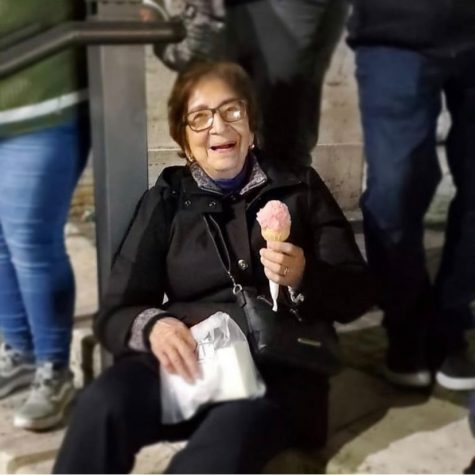
Furthermore, Triana expressed that his grandmother liked to be sarcastic and always made jokes. He mentioned that she would poke fun at his cousins, aunt and uncles and he found it amusing to be around her. He remembered the valuable life lessons she would instill on her children and grandchildren.
“She was really close to me. I was like her spoiled grandson. So it felt pretty sad when I lost her, and she lived with us, so I spent basically every morning with her. It was hard those first few days after she passed,” Triana said.
Ruiz began showing symptoms of COVID-19 in late July. On the fourth night of being sick Ruiz could not breathe, so an ambulance was called and she was taken to the Intensive Care Unit (ICU), where she then tested positive for COVID-19. Her condition was wavering, but she was doing “decently well” and was “on the road to recovery,” according to Triana. However, a few days later, she unexpectedly passed.
Triana said that his family “knew it was going to come sooner or later,” but he was still confused at his grandmother’s passing due to her unpredictable condition. In addition, Triana said that he has not talked to anyone else about Ruiz’s passing but knew that everyone who she knew was “obviously pretty sad.”
“I had already accepted that it was a possibility that she was gonna pass, so I didn’t [get] hit too hard, of course, but it felt pretty sad,” Triana said. “Right now I’m doing a lot better, but it still hurts every once in a while.”
Triana described how coping with her death was a difficult process. He did not immediately become sad, but after his loss settled for a period of time, he struggled to manage it. After a while, however, he felt better and began to accept his grandmother’s death. Triana felt comforted by his favorite memories with Ruiz.
“[When I would go] over to my aunt’s house I would walk up to her, and she would always give me these little orange sour gummies. I just really loved that every time she would always give me those gummies, and I [would] sit down with her and eat them,” Triana said.
Tell your family that you love them. No matter if it’s your mom, dad or cousin that you haven’t seen for years: you never know when it’ll be your last time.
— junior Grace Ayala
Amid a staggering national death toll from COVID-19, experts predict the United States will face decades of social and economic recovery as the human losses settle. For many mourners, the pain of personal loss will never subside, but the legacy of life remains.
“Tell your family that you love them,” Ayala said. “No matter if it’s your mom, dad or cousin that you haven’t seen for years: you never know when it’ll be your last time.”
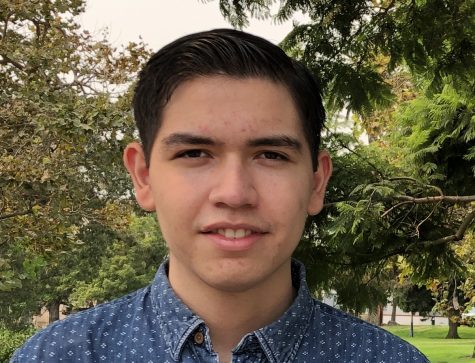
As a senior, I’m excited to return to the Crusader staff for the second year. I believe in journalism’s ability to highlight the key issues, trends,...
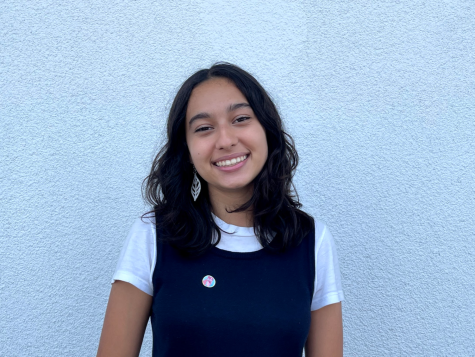
I am a Senior at Bonita Vista High and this is my second year as a staff member for the Crusader. I am now CPS Editor and previously was News Editor. ...

